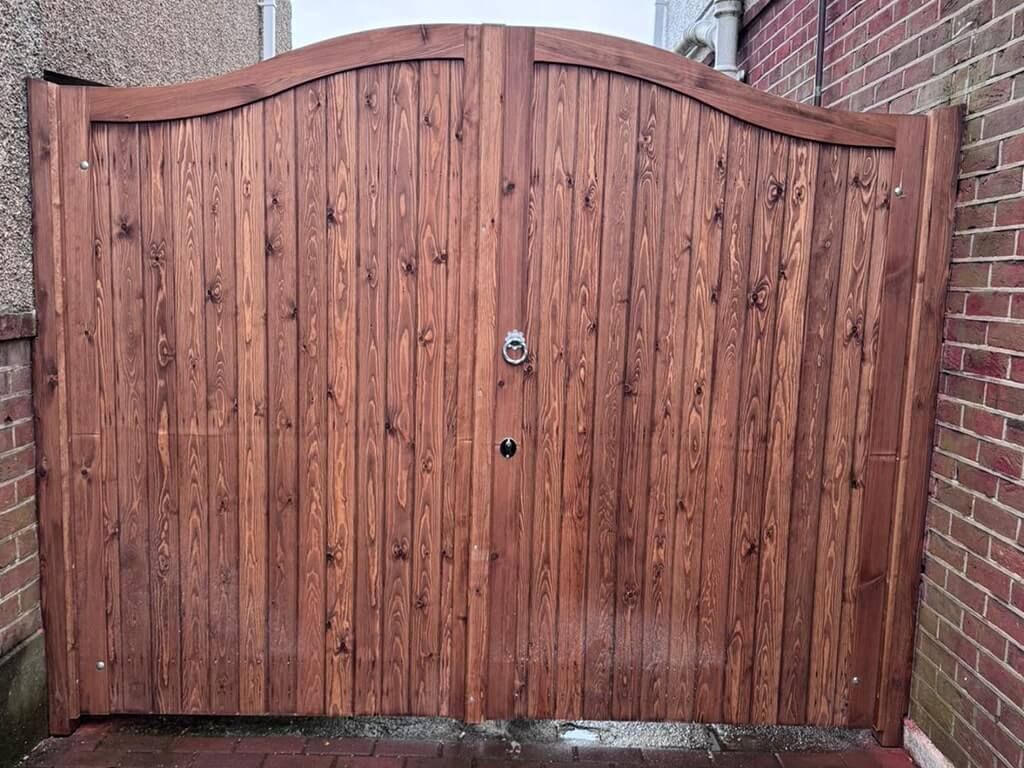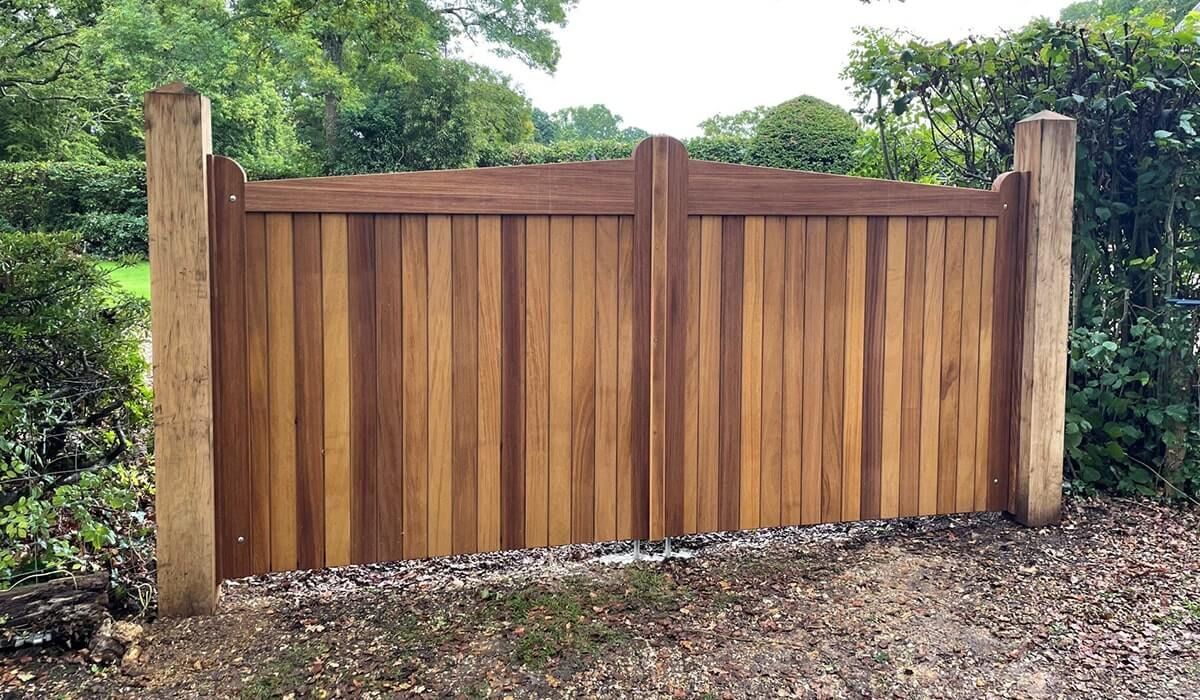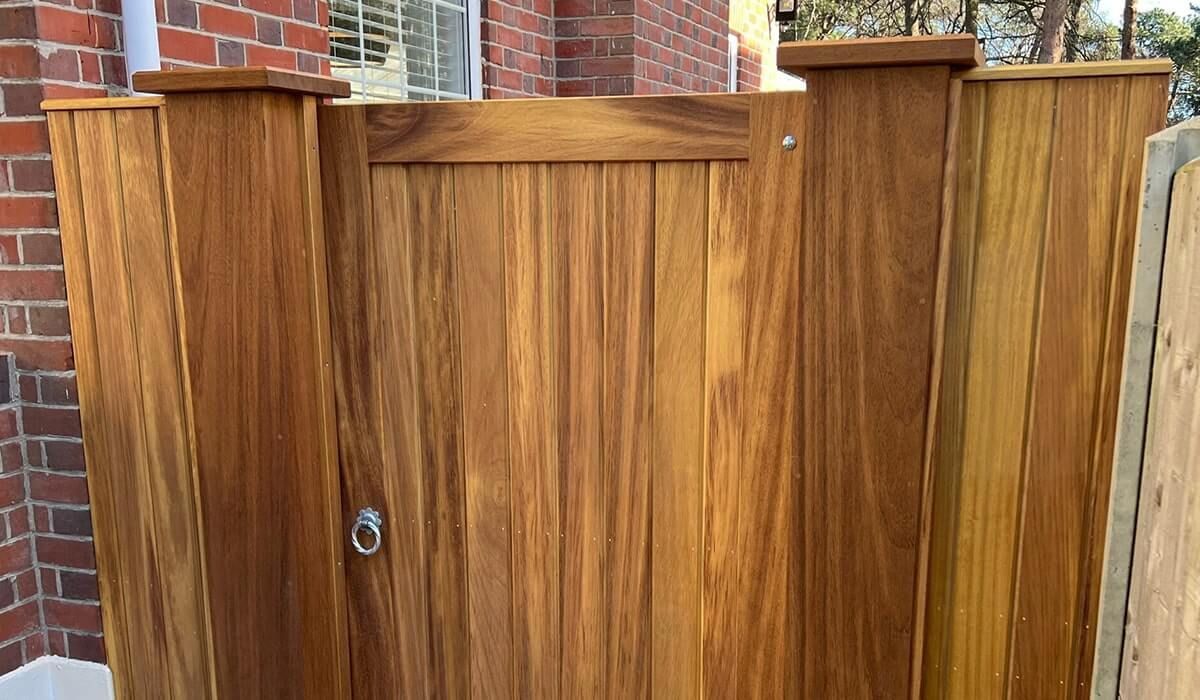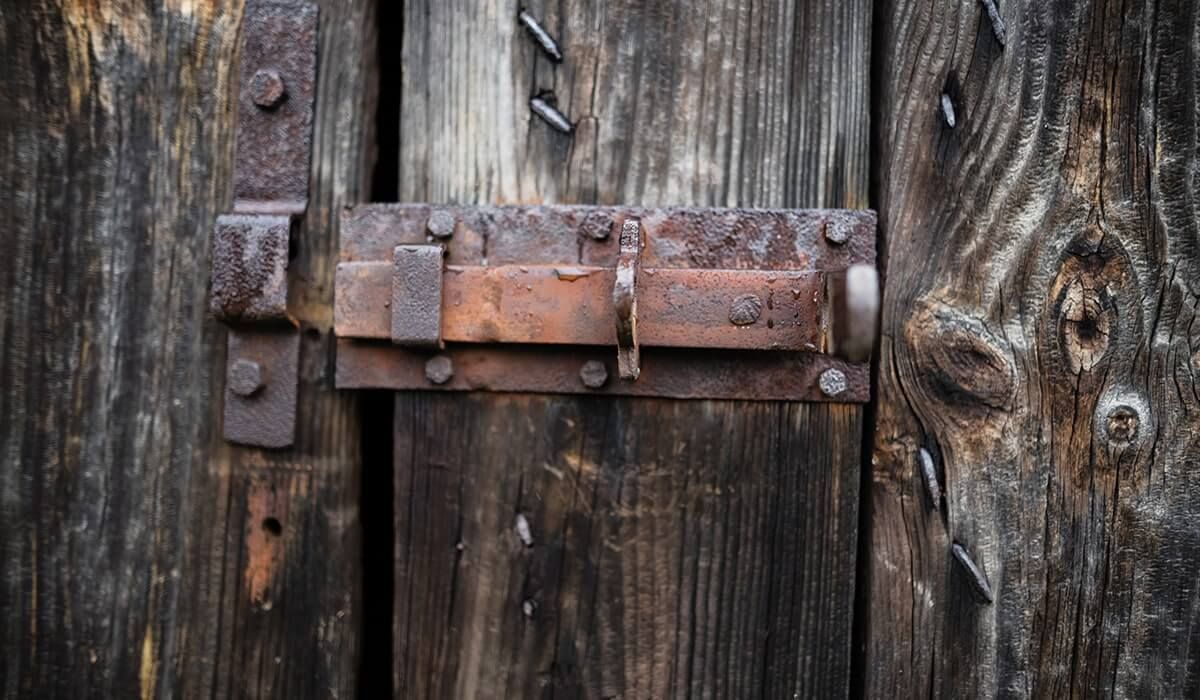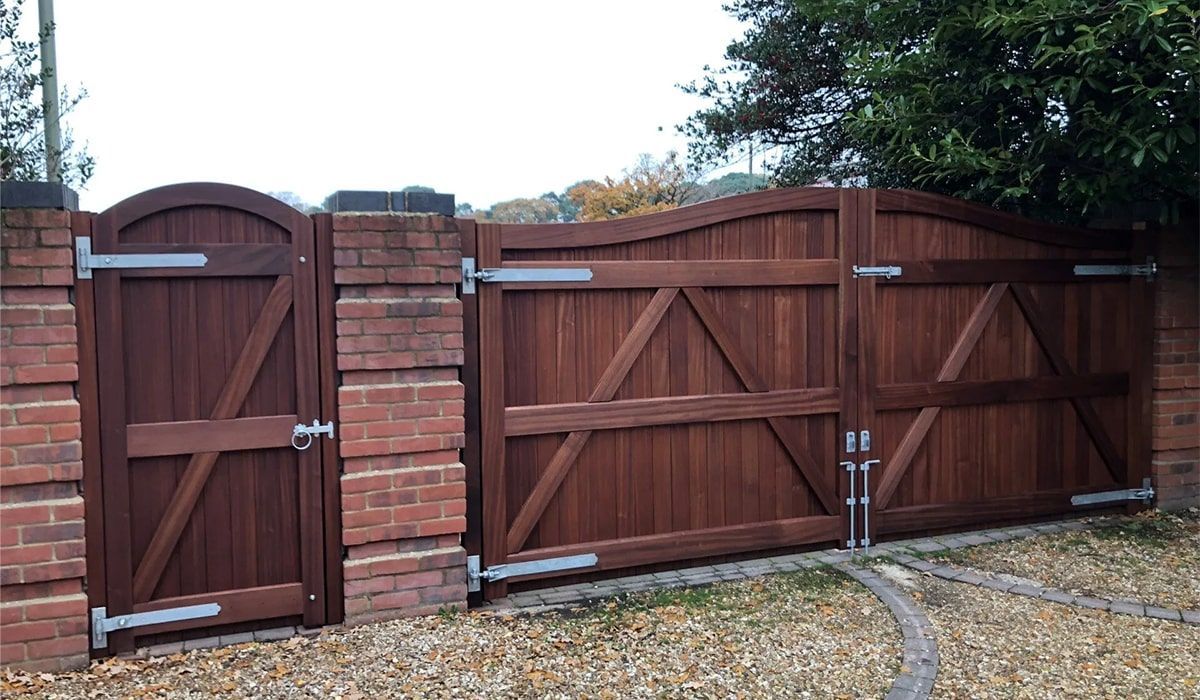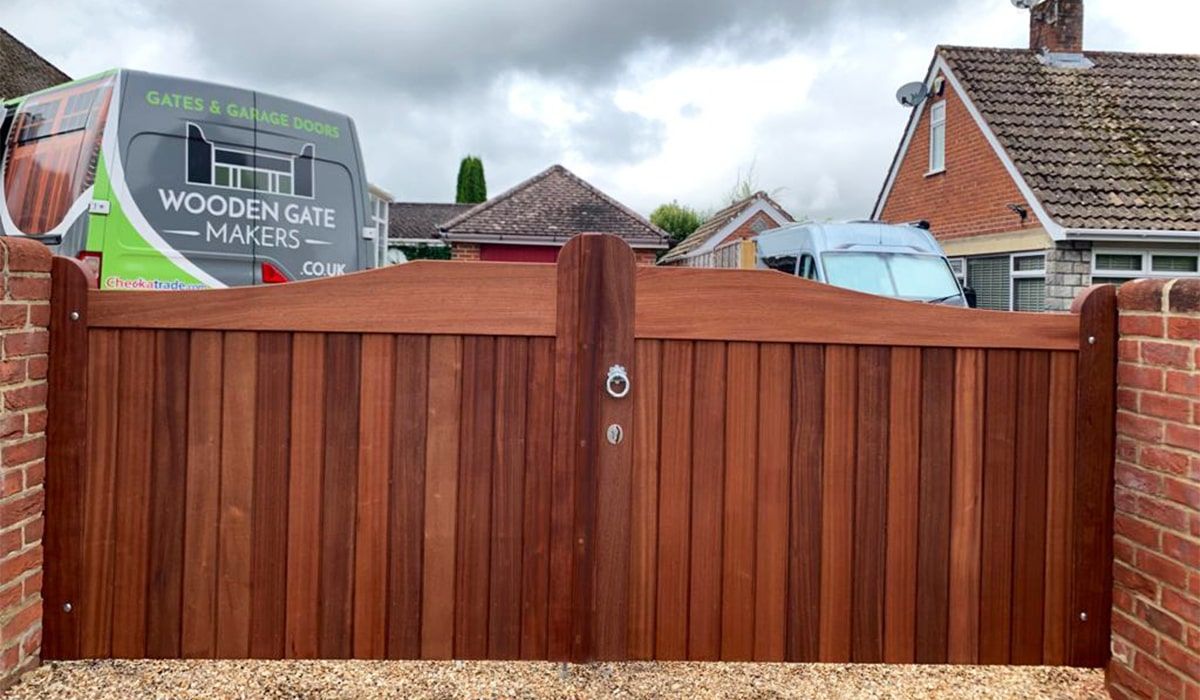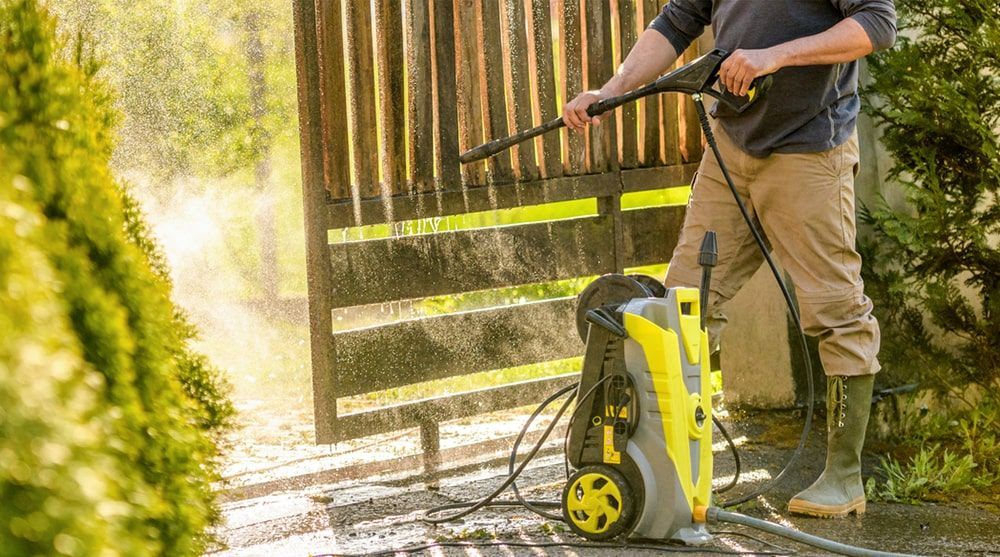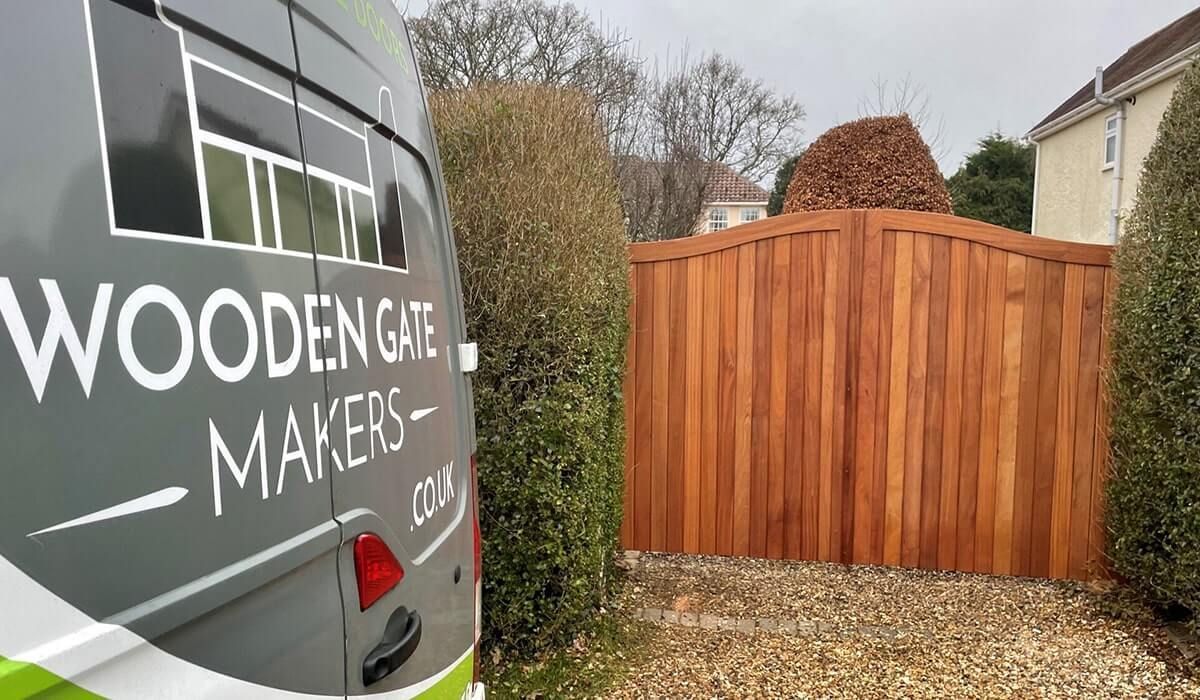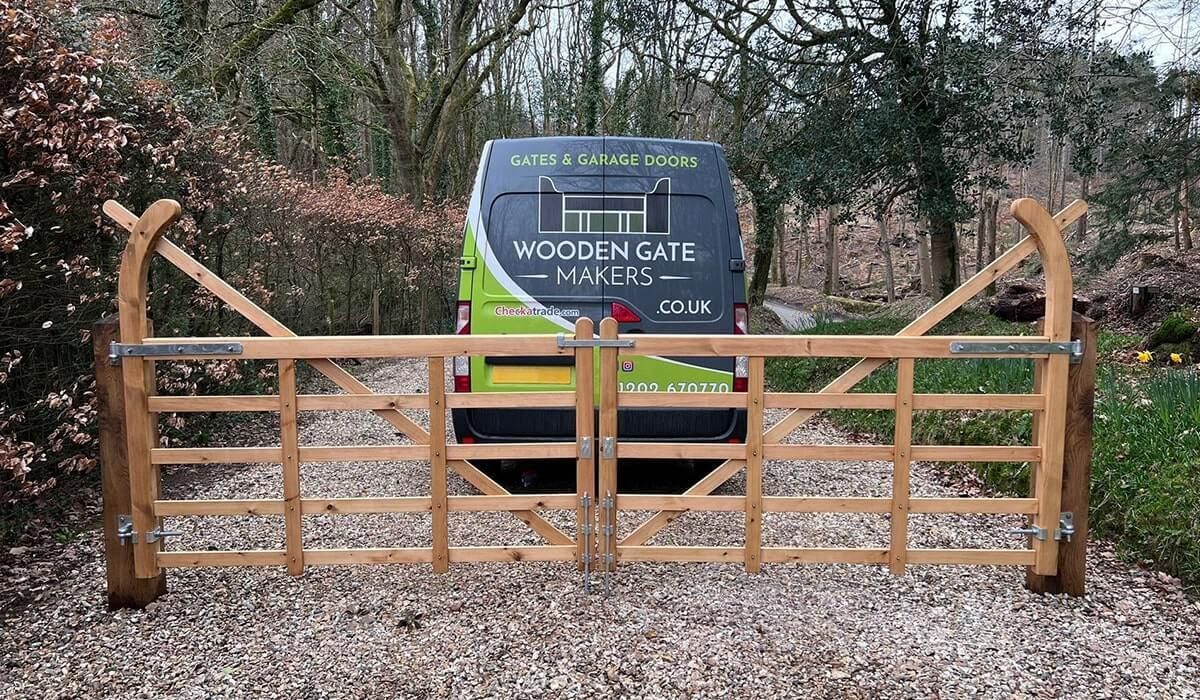How to Choose the Best Wood for Your Garden Gate
- by Phil Barratt
- •
- 18 Jul, 2023
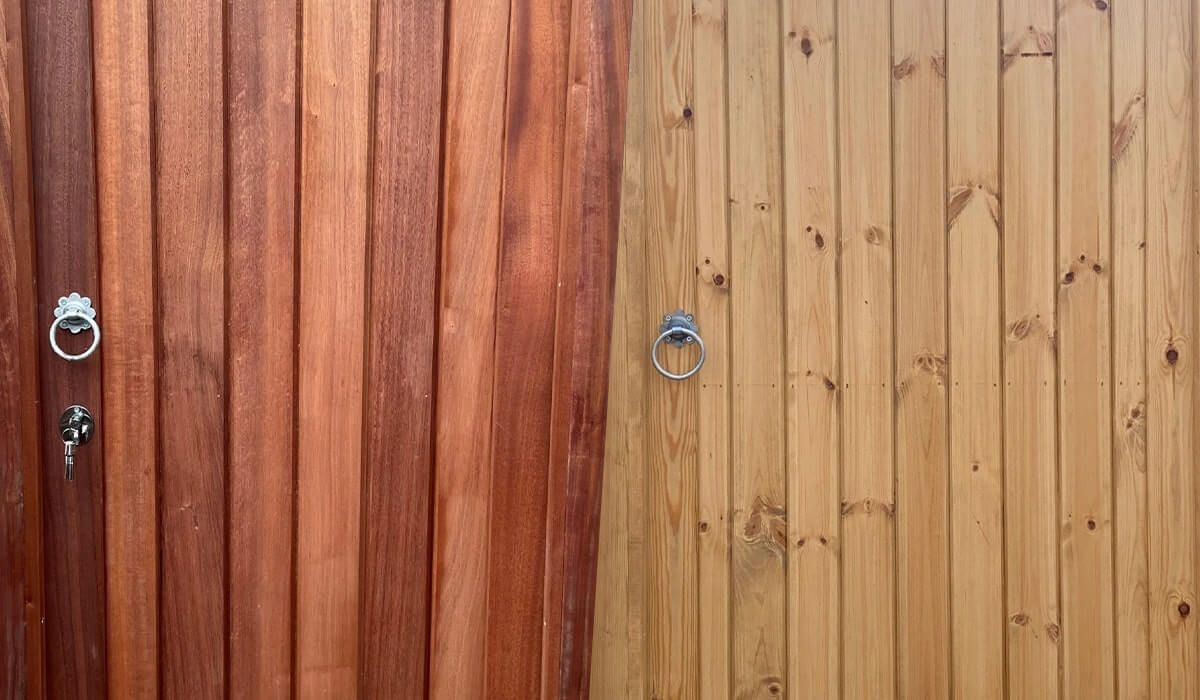
There are a lot of different wood types out there, and they all have a range of different qualities. These qualities affect how the wood will perform in different environments – so it’s good to think about before choosing your next garden gate.
At Wooden Gate Makers, we make our gates from either softwood or hardwood, with Redwood, Sapele, Iroko and European Oak as our staple materials. Here, we’ll discuss the advantages and disadvantages of each wood type and advise on which wood to choose for your specific garden gate.
At Wooden Gate Makers, we make our gates from either softwood or hardwood, with Redwood, Sapele, Iroko and European Oak as our staple materials. Here, we’ll discuss the advantages and disadvantages of each wood type and advise on which wood to choose for your specific garden gate.
Redwood Garden Gates
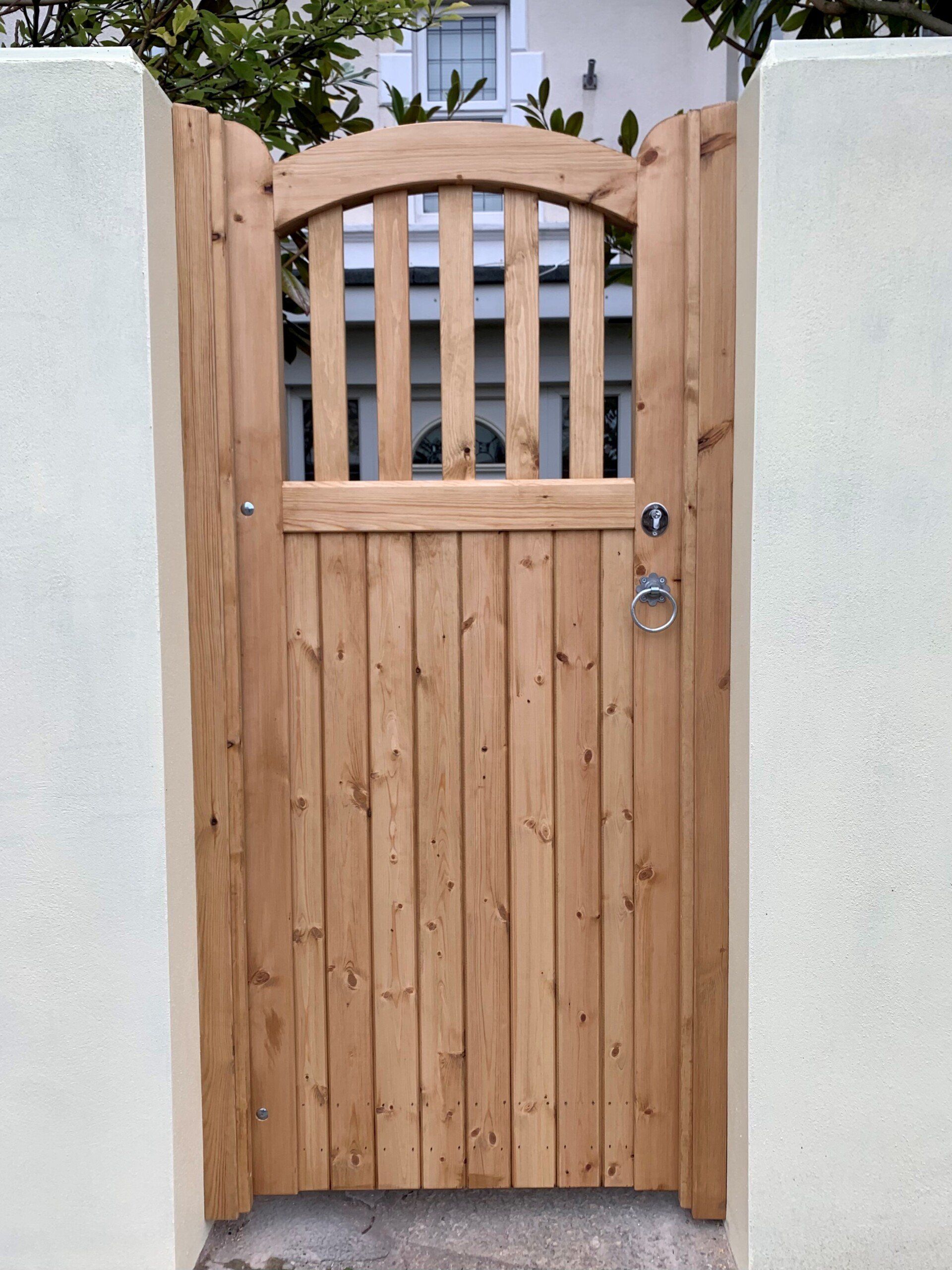
Redwood is our primary softwood option, which makes it distinctly different from the hardwoods featured in the rest of this page.
Redwood is highly prized for its natural beauty, stability, workability and sustainability. These characteristics make it a popular choice for a wide range of applications, including outdoor structures such as garden gates.
Redwood is highly prized for its natural beauty, stability, workability and sustainability. These characteristics make it a popular choice for a wide range of applications, including outdoor structures such as garden gates.
Advantages of Redwood Garden Gates
- Rich reddish-brown colour and attractive appearance.
- Stability and minimal warping compared to many woods.
- Easy workability can reduce manufacturing time and costs.
- Reasonable durability and good resistance to decay, insects, and rot.
- Sustainable sourcing from regenerative redwood forests.
Disadvantages of Redwood Garden Gates
- Redwood can be prone to sun damage and UV fading if not adequately protected. Continuous exposure to direct sunlight can cause the wood to lose its original colour and develop a greyish tone over time.
- As a softwood, redwood gates will require treating and can scratch easily compared to hardwood.
Why Choose a Redwood Garden Gate:
Consider choosing redwood for its cost-effective nature and excellent aesthetic properties. If your budget is tight, softwoods are usually cheaper, and redwood in particularly has an attractive reddish hue.
Sapele Garden Gates
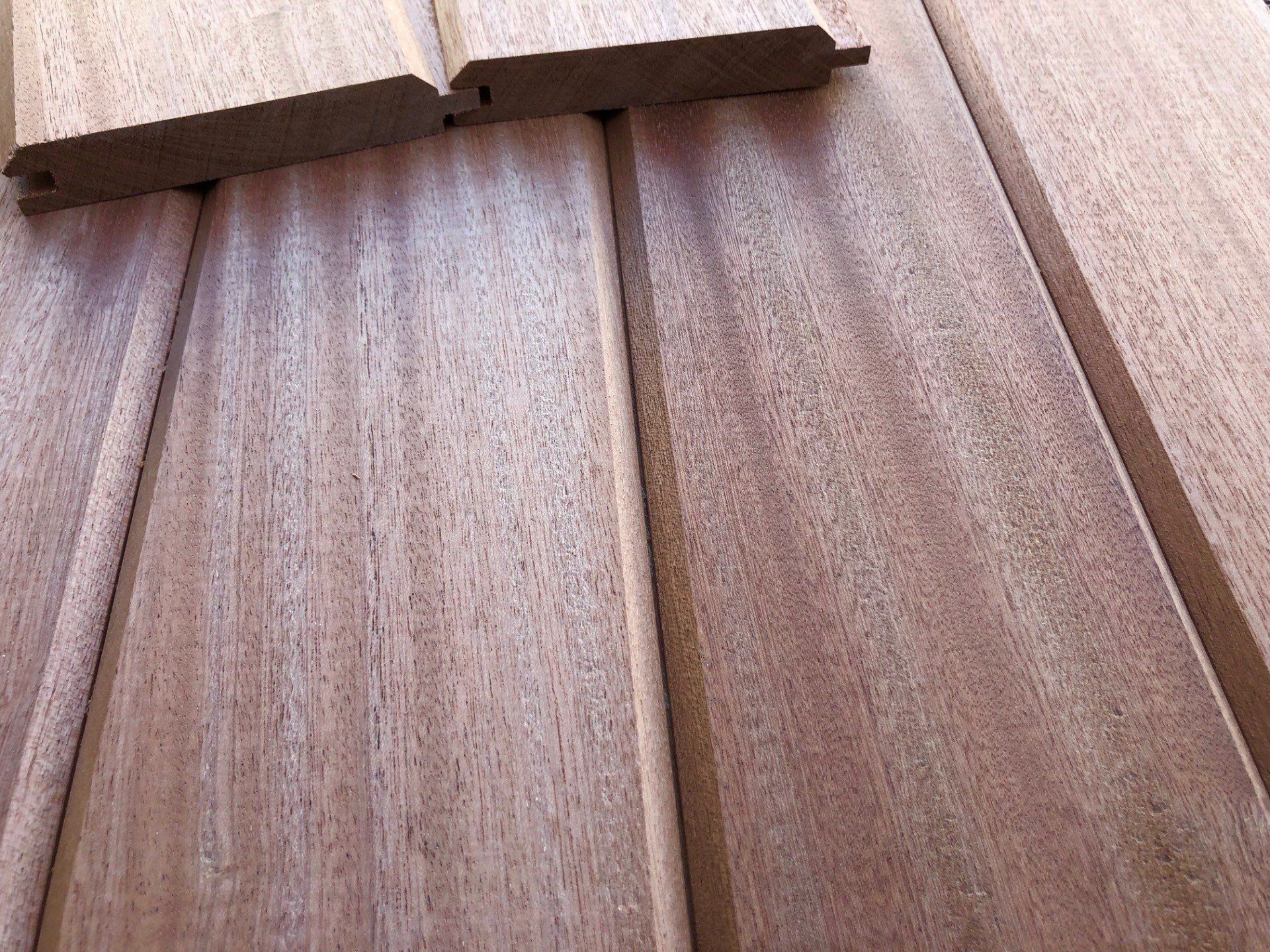
With its rich reddish-brown colour, interlocking grain pattern, and inherent strength, sapele wood offers a unique combination of beauty and resilience. It’s a popular choice for garden gates, often compared to mahogany in appearance.
Advantages of Sapele Garden Gates
- Captivating aesthetics resembling mahogany.
- Subtle chatoyancy for added visual interest.
- Excellent dimensional stability.
- High strength and durability.
- Resistance to decay, rot, and insects.
- Sustainable sourcing for environmental consciousness.
Disadvantages of Sapele Garden Gates
- Susceptibility to water stains: sapele wood is prone to water stains, especially when exposed to moisture or high humidity for extended periods. If not properly sealed or maintained, these stains can mar the appearance of the wood.
- Potential for colour variation: sapele wood can exhibit slight variations in colour and grain pattern within the same piece or across different boards. This natural variation may be desirable for some projects, but it can also make it challenging to achieve a consistent look if uniformity is desired.
Why Choose Sapele Garden Gates:
Choose sapele gates if you love the appearance of mahogany but want a cheaper, more sustainable option for your wooden garden gates.
Iroko Garden Gates
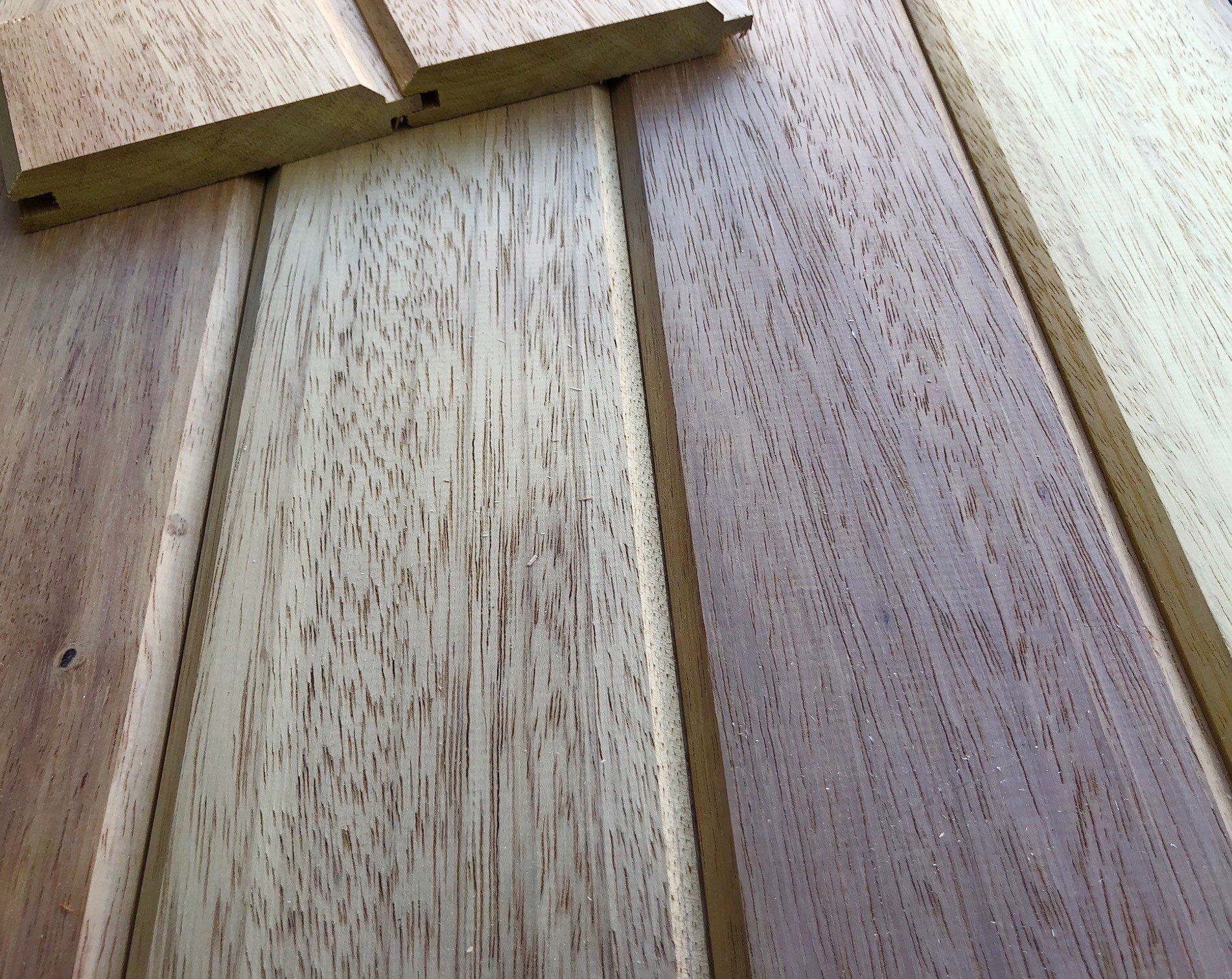
Iroko wood, renowned for its exceptional durability, distinctive grain patterns, and versatility, has established itself as a highly sought-after material. This hardwood
has a warm golden- to medium-brown hue and matures gracefully over time.
Advantages of Iroko Garden Gates
- Extremely durable – it is only marginally less dense than oak.
- Excellent stability with minimal warping and shrinking in response to changes in temperature and humidity.
- Unique grain patterns that range from straight to wavy or even slightly irregular, adding character and visual interest.
- Over time, the wood's golden-brown colour gracefully matures into a silvery-grey hue through a natural aging process known as "iroko silvering" or "iroko patina".
Disadvantages of Iroko Garden Gates
- Workability challenges: iroko wood can be moderately difficult to work with due to its high density and interlocking grain.
- Higher costs: because it is quite hard to work with, structures made from iroko can end up being priced higher.
Why Choose Iroko Garden Gates:
Choose iroko if you favour the look of teak wood but want a more sustainable choice. Thanks to its hardwearing properties, it’s a great choice for highly robust garden gates.
European Oak Garden Gates
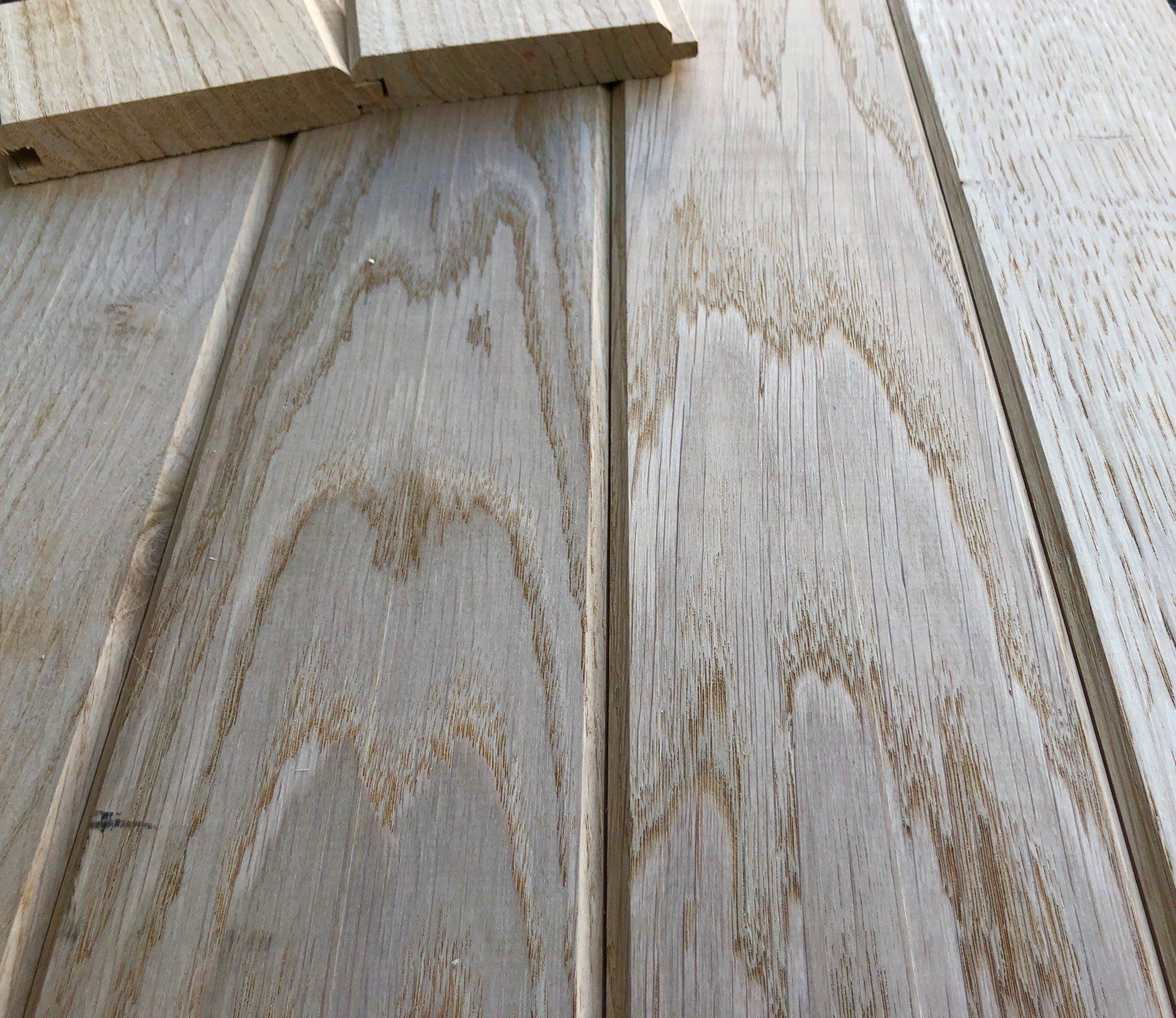
European oak is well known for its durable properties and classic appearance. It features distinctive grain patterns and warm tones whilst bringing a touch of natural elegance.
Advantages of European Oak Garden Gates
- Aesthetic appeal with distinct grain patterns.
- Exceptional durability and strength.
- High resistance to warping.
- Longevity and enduring quality.
Disadvantages of European Oak Garden Gates
European oak is reasonably expensive compared to other woods due to its slowness to grow and the extra time required to build with such a dense wood.
Why Choose European Oak Garden Gates:
Choose European oak if you want particularly dense and weighty garden gates with excellent longevity.
Incredible Garden Gates from Wooden Gate Makers
Now that you’ve got more of an idea about the materials we offer, we hope you’ll feel more confident about choosing the wood for your next garden gate.
All our wood is sourced from the highest-quality producers and worked by our expert craftsmen to create stunning gates that elevate gardens and offer amazing longevity.
With bespoke gates made for each project, you can be rest assured that Wooden Gate Makers will build the perfect option for your garden.
For more information, give us a call on01202 670770 or send us a message via our contact form.
All our wood is sourced from the highest-quality producers and worked by our expert craftsmen to create stunning gates that elevate gardens and offer amazing longevity.
With bespoke gates made for each project, you can be rest assured that Wooden Gate Makers will build the perfect option for your garden.
For more information, give us a call on01202 670770 or send us a message via our contact form.
Share
Tweet
Share
Mail


Name & Registered Office: Bespoke Design UK LTD Austin House,43 Poole Road, Bournemouth, BH4 9DN (workshop address on contact page) - Company No. 05974013
© 2024. The content on this website is owned by us and our licensors. Do not copy any content (including images) without our consent.
